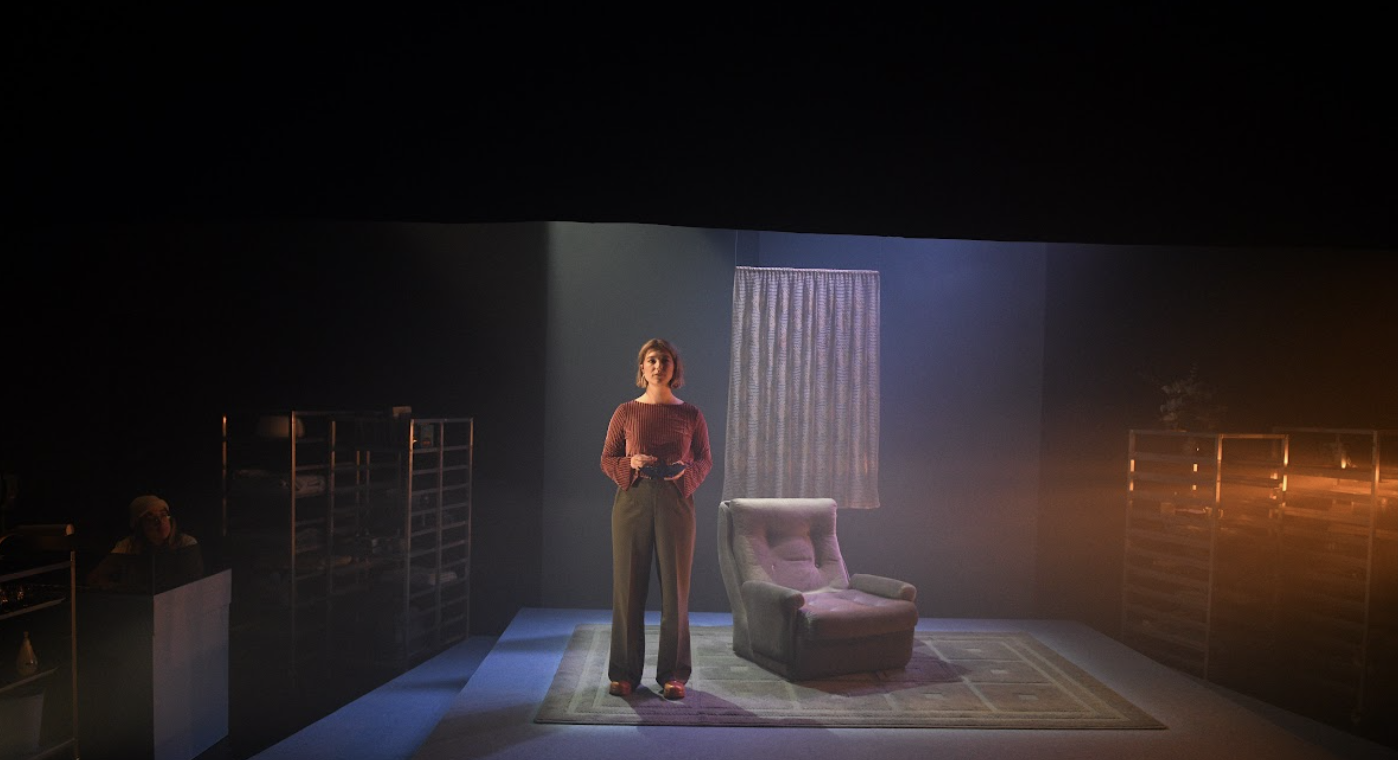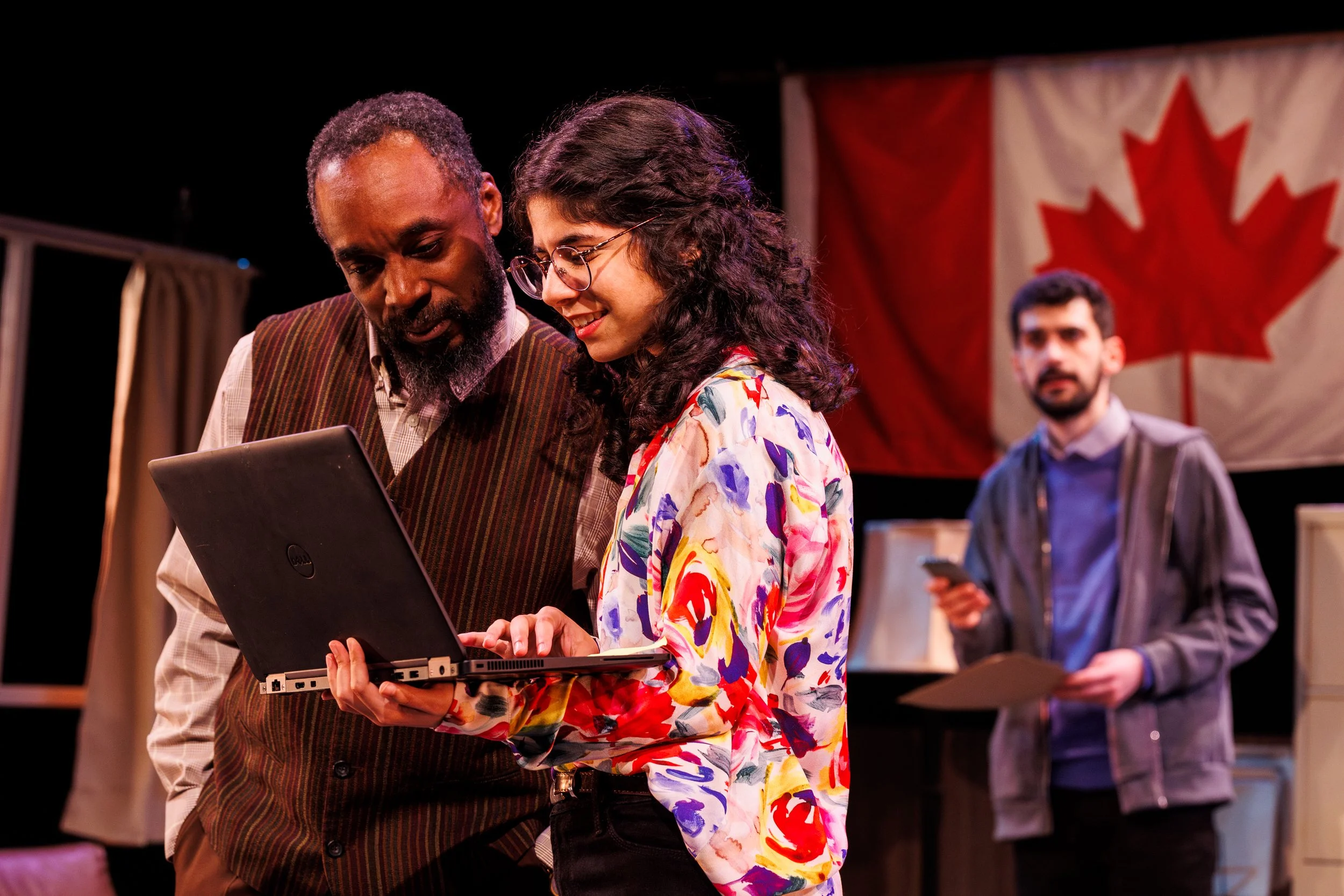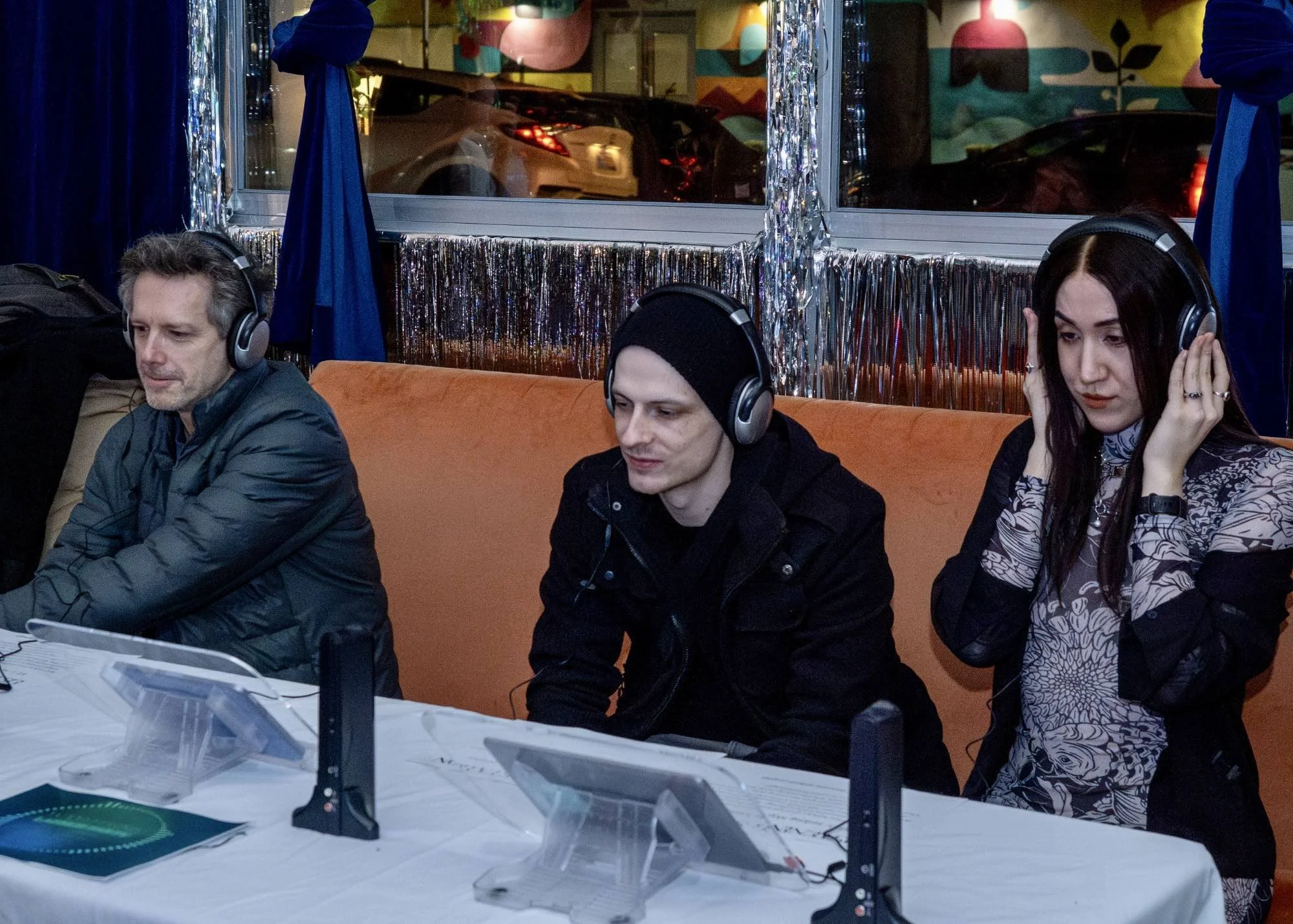Je viendrai moins souvent (I will come less often) explores a woman’s relationship with her grandmother experiencing dementia
Playwright-actor Camille Paré-Poirier uses recordings of the pair’s conversations in her new play coming to Théâtre la Seizième
Je viendrai moins souvent (I will come less often).
Théâtre la Seizième presents Je viendrai moins souvent (I will come less often) at Studio 16 from December 11 to 14
CAMILLE PARÉ-POIRIER was 22 years old when she moved to Montreal from Quebec City in 2016 via Saint-Hyacinthe, where she studied acting. Around the same time, her 92-year-old grandmother, Pauline, was moved into a long-term care facility, beginning to show signs of dementia.
For the next four years, Paré-Poirier visited her grandma regularly, having one-on-one time where the two had long conversations and got to know each other better. Paré-Poirier decided to record their talks, allowing her grandmother to share her memories and tell her own story even as her mind slowly began to unravel.
Paré-Poirier turned those recordings into a podcast called Quelqu’une d’immortelle (Someone immortal). She later adapted that program into a solo play, Je viendrai moins souvent (I will come less often), which is coming to Vancouver’s Théâtre la Seizième from December 11 to 14. (The play is in French with English surtitles.)
In a phone interview from Montreal, Paré-Poirier explains that at the outset, she and her grandmother were both in a period of a major life transition.
“I was moving to Montreal alone, and she was a widow living alone,” Paré-Poirier says. “She was losing autonomy, and I was gaining autonomy, so we were both dealing with things in our lives and in our relationship. Before, she was taking care of me, and I began to take care of her. That’s the starting point where that show begins.
“I realized I didn’t know who she was before me or what was her life like when she was younger, things like how she met my grandfather,” she adds. “I started recording because I wanted to have a trace of it to remember it. Then I realized that in wanting to capture her memory I was actually capturing her memory loss.”
Paré-Poirier learned things about her grandmother such as how she came from a poor family; her father had died when she was very young so her mom opened up a store selling sewing kits while the family lived in the back of the shop. Even though they had little, there were always people around and friends were always welcome. “She said she had a very, very beautiful childhood even though they were poor,” Paré-Poirier says. “They had enough.”
Her grandmother went on to work as a nurse in a hospital setting. As her mind went downhill, she would often think she was back at that hospital, or at an airport or in a train station. “She very often thought she was in a place of transition,” Paré-Poirier says. “She was living through a transition and it was always those places where she was moving from one point to another.
“At first I wanted to write a fictional story inspired by the recordings, but then every time I was presenting them to a family member or friend, people were always saying ‘She is so funny! She is so interesting!’ I realized the show had to be with those recordings. She was more interesting than any fiction I could have written. Sometimes she is funny, sometimes she is full of joy, but sometimes she is in distress or she is angry.”
Camille Paré-Poirier. Photo by Julie Artacho
Paré-Poirier got consent from her grandmother to record their conversations, and then acquired permission from her mother and her aunt to use the recordings in her podcast and theatre piece; she thinks her grandmother would have approved, too. “I think she would have laughed a lot but I think she would have cried too because of what was happening to her,” Paré-Poirier says.
“A lot of people ask me how it is to relive every night the death of my grandma, the grieving, but I don’t see it like that,” Paré-Poirier says. “It’s like having the chance to spend the night with her. I think it’s harder for people to watch the show than it is for me to do it. I realized we were so different but we are also the same; we all go through the same questions and the same existential crises.”
Pauline got to a point where she didn’t recognize her granddaughter anymore, though Paré-Poirier says she was one of the last people the woman lost association with. It was hard to watch her grandmother’s mind go. For a while, her grandmother was angry; Paré-Poirier thinks that’s because she was scared and was aware of what was happening. Then she became more at peace.
“At some point they are not scared anymore because they’re past it; they don’t realize they’re losing it and they’re calm again,” she says. “That part where she got calmer and silent was worse for me than when she was angry because when she was angry she was fighting for something. When she was calmer she didn’t know where she was and it didn’t matter.”
Some of the recordings were taken during a two-month period when the pandemic was at its peak and visits weren’t allowed; the two could only communicate via phone. Je viendrai moins souvent isn’t a political work but it touches on the fragile state of the health-care system, with nurses answering the phone who sound stressed or pressed for time.
Ultimately, although Je viendrai moins souvent deals with difficult subject matter, Paré-Poirier says it is uplifting.
“The show and the story can be very sad, but I really think I found a way to make it about life, not just about death,” she says. “It’s about relationships and how we want to remember people.” ![]()


































